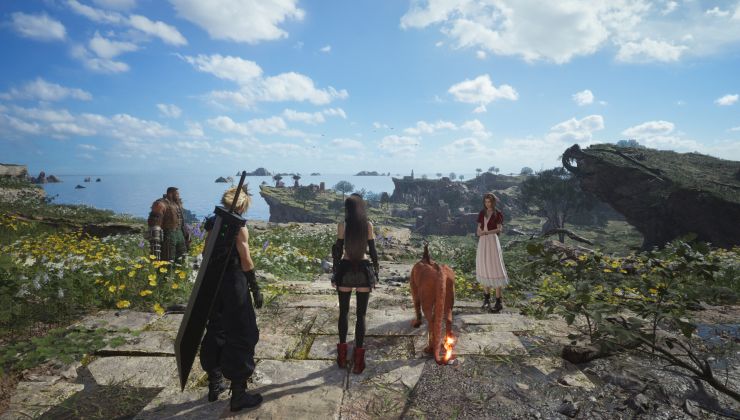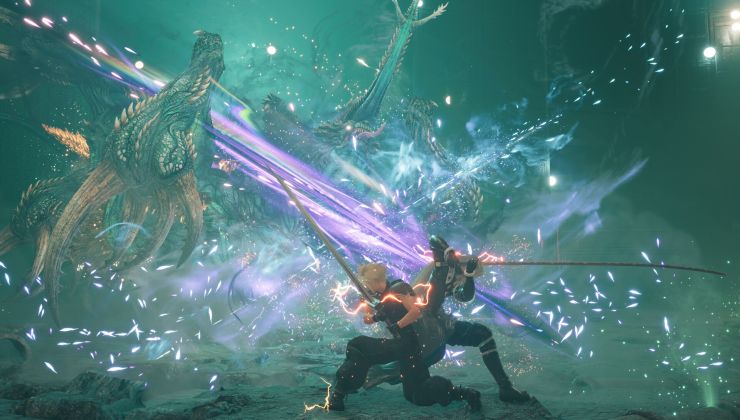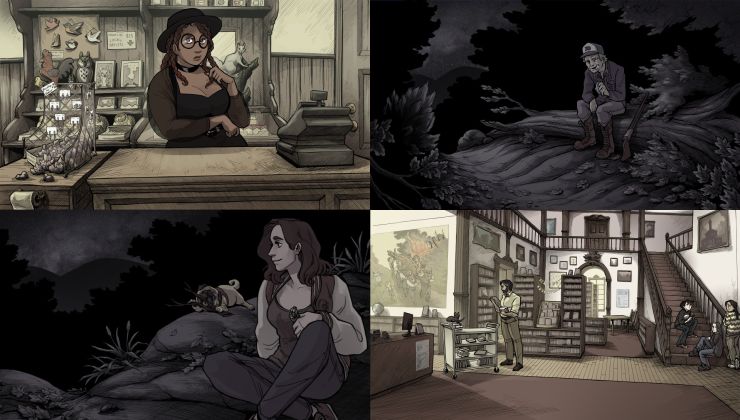The saga with the Unity game engine continues, after their completely botched announcement of a new fee system game developers will need to pay.
Just to briefly bring you up to speed from the previous article: once developers hit both a revenue and install threshold for their games, they will then need to pay Unity for each install after the threshold is met. For example: based on their "standard rate" on Unity Personal if developers made at least $200K in the last 12 months, and had at least 200,000 total game installs, each install after would cost them $0.20 per new install but it's less on Unity Pro and Unity Enterprise (and less again on each when install milestones are hit).
Part of the problem is that Unity very badly explained it, although the whole idea just doesn't seem to be very good. One big issue is that this change is retroactive for existing released games. So any game currently on the market that uses Unity will need to begin paying for each time a new player installs their game, if they're over those thresholds after January 1st, 2024.
It didn't help that when Unity tried to clarify these details, initially they said that re-installs of games will count towards the installs and that would include installs on new hardware. They've since clarified again to say it's only for the "first install and we have no desire to charge for the same person doing ongoing installs".
In another clarification post on social network X, Unity mentioned "more than 90% of our customers will not be affected by this change", which means at least 90% of Unity users don't make $200K a year and have fewer than 200K installs total at a minimum. Not exactly the best advert for their game engine. They also clarified these details:
How we define and count installs: Assuming the install and revenue thresholds are met, we will only count net new installs on any device starting Jan 1, 2024. Additionally, developers are not responsible for paying a runtime fee on:
- Re-install charges - we are not going to charge a fee for re-installs.
- Fraudulent installs charges - we are not going to charge a fee for fraudulent installs. We will work directly with you on cases where fraud or botnets are suspected of malicious intent.
- Trials, partial play demos, and automation installs (devops) charges - we are not going to count these toward your install count. Early access games are not considered demos.
- Web and streaming games - we are not going to count web and streaming games toward your install count either.
- Charity-related installs - the pricing change and install count will not be applied to your charity bundles/initiatives.
Oh, and their updated FAQ still claims that different devices are a different install so they will count again. So if you switch between a PC, a laptop, a Steam Deck, ROG Ally - or other devices, developers will have to pay each time. I don't need to explain why that's ridiculous do I? Why should a game developer pay their game engine multiple times just because a user who purchased their game installed it in more than one place. Absolute idiocy.
The big problem is: how are they tracking these installs? Well, they won't actually tell anyone. They just claim "We leverage our own proprietary data model, so you can appreciate that we won’t go into a lot of detail, but we believe it gives an accurate determination of the number of times the runtime is distributed for a given project." — so you have to trust them.
According to Facepunch developer Alistair McFarlane on X, "The Rust cheat community already has a working reinstall script for Rust with a unique HW spoofer on each install". No doubt there will be more like it. Detecting and accounting for spoofed installs is going to be a nightmare for developers by the looks of it.
Even with the clarifications, and even if Unity eventually did a big u-turn on all this, it doesn't change that the trust is broken to just spring such a complete overhaul to their fee system including making it retroactive. Compounding that issue is how Unity previously said in 2019 that:
When you obtain a version of Unity, and don’t upgrade your project, we think you should be able to stick to that version of the TOS.
In practice, that is only possible if you have access to bug fixes. For this reason, we now allow users to continue to use the TOS for the same major (year-based) version number, including Long Term Stable (LTS) builds that you are using in your project.
Moving forward, we will host TOS changes on Github to give developers full transparency about what changes are happening, and when. The link is https://github.com/Unity-Technologies/TermsOfService.
That GitHub was taken down but hey, the Wayback Machine archive exists. However, it was also made clear in their legacy TOS as well when you read "if the Updated Terms adversely impact your rights, you may elect to continue to use any current-year versions of the Unity Software (e.g., 2018.x and 2018.y and any Long Term Supported (LTS) versions for that current-year release) according to the terms that applied just prior to the Updated Terms" but this TOS was replaced in October 13, 2022 with a new TOS that entirely removes this protection for developers. Nice bait and switch there Unity.
Developers certainly aren't pleased, pissed-off would be an massive understatement, with many putting out statements calling for Unity to reverse the whole thing, some even mentioning they will remove their games. Lots of developers are now looking at Godot, Unreal, Game Maker and other engines to see if they can switch for their next or existing projects too.
Some choice picks include:
- Mega Crit, developer of Slay the Spire, with their statement on X noting that they will switch game engine unless it's entirely reversed and that "We have never made a public statement before. That is how badly you fucked up.".
- Cult of the Lamb developers say they will delete the game on January 1st.
- Publisher Devolver Digital now say to "Definitely include what engine you’re using in game pitches.", as no doubt this install fee will heavily complicate the developer-publisher relationship with tracking it accurately across so many places.
- Developer Rami Ismail mentions an important bit in a thread on X, on how "Hey but seriously, if you're a marginalized dev at risk of hate brigading and your Unity game is available on any DRM-free platform, basically you're utterly fucked at this point unless this gets reversed. There's a moral imperative to tell Unity leadership to get fucked here.".
Given how, noted above, Rust cheaters already have a hardware spoofer it's not looking good. - Garry Newman of Facepunch said "Unity can get fucked" in a blog post.
- Innersloth, developer of Among Us, mentioned they would "delay content and features our players actually want to port our game elsewhere".
- Brandon Sheffield of Necrosoft Games wrote a blog post titled "The death of unity" that mentions "But now I can say, unequivocally, if you're starting a new game project, do not use Unity. If you started a project 4 months ago, it's worth switching to something else. Unity is quite simply not a company to be trusted."
I could pull out hundreds more, but you get the idea. It's not small names being annoyed by this, it seems like one of the few times almost the entire industry has rallied around something like this. Even Geoff Keighley replied to Unity on X to say "What a joke.".
Worse still, is that developers at Unity did reportedly give their concerns about the announcement which were ignored.
The reality is that install tracking will be a nightmare. It's something that might sound good in theory, but it has so many problems it just seems like it wasn't really properly thought-through.
If you need some Unity alternatives check out this article.
"Unity", right. Time to change the name.
Discord is already taken.
Calamity- oh wait that's already taken by a terraria mod.
I don't understand why they just don't go with the same model as Unreal Engine has (maybe they have a new one now, I didn't check for some time) and if the game makes some amount of money, they need to pay from each sold copy. The installs amount seems really strange as a metric.Well, to be fair (even though I don't really want to be fair about this), if an awful lot of the outfits using Unity are doing free-to-play games, a percentage of game sales is going to get them exactly zero from those--which in turn would also mean that if they turn up the percentage high enough to break even, it's gonna have to be way higher than if those people were paying their share. So I can see them needing some way to extract dough from people who give away the base game for free and make their revenue from microtransactions (and I think we can all agree that someone ought to be taking those people's money).
This still seems like a stupid and really annoying way to go about it.
Last edited by Purple Library Guy on 14 Sep 2023 at 5:03 pm UTC
Like with stuff like Cult of the Lamb - wouldn't "deleting" their game be pointless anyway? Like if I bought the game on say Steam already, I could still download it after January 1.
Not if they delete the depots.
Like with stuff like Cult of the Lamb - wouldn't "deleting" their game be pointless anyway? Like if I bought the game on say Steam already, I could still download it after January 1.
Not if they delete the depots.
Are they even allowed to do that? Like legally. Delisting is one thing.
Like with stuff like Cult of the Lamb - wouldn't "deleting" their game be pointless anyway? Like if I bought the game on say Steam already, I could still download it after January 1.
Not if they delete the depots.
Are they even allowed to do that? Like legally. Delisting is one thing.
I don't know. But technically it's possible to, at least, empty the depot or modify any of the files - even if not delete.
"Unity", right. Time to change the name.
Discord is already taken.
Calamity- oh wait that's already taken by a terraria mod.
CATACLYSM!
And as I said on the other post, I find it pretty amazing this can be done retroactive one sided, the "phone home on install" code must have been in their for quiet a while.
Funny how their stock went up a little today, then dropped again but not as much as it was in the morning, so I guess investors see a future, sort of... ([select 5D](https://www.marketwatch.com/investing/stock/u))
Last edited by Bumadar on 14 Sep 2023 at 6:54 pm UTC
Worse still, is that developers at Unity did reportedly give their concerns about the announcement which were ignored.
If you're looking to build a game engine, I suspect a number of talented developers just became available.
Clearly they let the sociopath write their PR material.
They can't "clarify" their way out of this mess. It's a cockamamie scheme, and every day that passes that they don't outright reverse course adds years of damage to their reputation.
Like with stuff like Cult of the Lamb - wouldn't "deleting" their game be pointless anyway? Like if I bought the game on say Steam already, I could still download it after January 1.
Not if they delete the depots.
Are they even allowed to do that? Like legally. Delisting is one thing.
I don't know. But technically it's possible to, at least, empty the depot or modify any of the files - even if not delete.
According to their tweets, the Cult of the Lamb devs were joking. The follow-up tweet that established that didn't make the same rounds on social media or outlets.
"The amount of news channels that 100% believed us have clearly never seen this image before." The image features the titular Lamb intensely making out with a presumed male Bird cultist.
https://twitter.com/cultofthelamb/status/1702091821273461176?ref_src=twsrc%5Etfw%7Ctwcamp%5Etweetembed%7Ctwterm%5E1702091821273461176%7Ctwgr%5E8e05771030908d555d7f0f3966f0f6dcd344cfec%7Ctwcon%5Es1_&ref_url=https%3A%2F%2Fwww.siliconera.com%2Fcult-of-the-lamb-could-be-removed-from-storefronts%2F
I don't need to explain why that's ridiculous do I? Why should a game developer pay their game engine multiple times just because a user who purchased their game installed it in more than one place. Absolute idiocy.You shouldn't have to, but look at Windows. They allow a finite number of installations, then you have to pay for a new license.
I also found it curious that they said the fees will be charged to the distributor. Does that mean Valve is responsible for tracking?
Third parties who publish or distribute the Unity Runtime on behalf of creators are responsible for paying the Unity Runtime Fee. Creators and these third parties remain obligated to pay the Unity Runtime Fee until the payment is verified.
States the user is liable to pay the fee if 3rd party does not, considering 3rd parties can't be forced to accept this agreement payment rests solely on the developer.
Let’s just say, this has made moderating the Godot discord a thousand times more difficult.
Just due to many newbies, or something else?
Mhm!
https://kotaku.com/unity-developer-fee-installs-john-riccitiello-sold-stoc-1850834439
If true, suspicious to say the least...
I have no idea how shares/stocks work but wouldn't that be classed as insider trading ?
Mhm!
https://kotaku.com/unity-developer-fee-installs-john-riccitiello-sold-stoc-1850834439
If true, suspicious to say the least...
I have no idea how shares/stocks work but wouldn't that be classed as insider trading ?
Yes, hence Mohandevir's "Mhm!"














 How to set, change and reset your SteamOS / Steam Deck desktop sudo password
How to set, change and reset your SteamOS / Steam Deck desktop sudo password How to set up Decky Loader on Steam Deck / SteamOS for easy plugins
How to set up Decky Loader on Steam Deck / SteamOS for easy plugins
See more from me